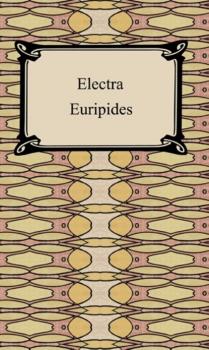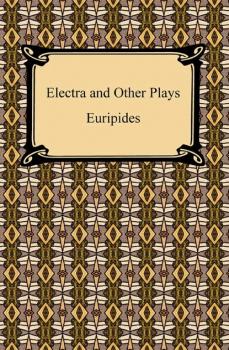ТОП просматриваемых книг сайта:
Зарубежная драматургия
Различные книги в жанре Зарубежная драматургия, доступные для чтения и скачиванияАннотация
Immerse yourself in the world of Oscar Wilde with the collection: «The Plays of Oscar Wilde.» Containing all of Wilde’s plays, this collection is a must-have for every bookshelf. Oscar Wilde was born in mid-1800’s Dublin to highly intellectual parents. He found a niche in the growing trend of aestheticism and was mentored by Walter Pater and John Ruskin. Although he dabbled in short stories and poems at the beginning of his career, Wilde was taken seriously after his first novel «The Picture of Dorian Gray.» The horrifyingly beautiful tale was just the catalyst that Wilde needed in order achieve success as a playwright. The next year, he wrote the play «Salome» to mild acclaim. It was denied a performance due to its portrayal of biblical characters, but it was eventually published in London and Paris. Wilde would subsequently produce some of his most famous works, biting comedic portrayals of society which include «Lady Windermere’s Fan,» «A Woman of No Importance,» and «An Ideal Husband.» The plays were wildly funny and beloved by most audiences, though some of the upper-class patrons were shocked at Wilde’s treatment of their lifestyle. Wilde would return to these same themes with his masterpiece «The Importance of Being Earnest,» a tale about upper-class morality and ennui. Also included in this collection are «Vera; or, The Nihilists,» «The Duchess of Padua,» and the fragmentary works «La Sainte Courtisane» and «A Florentine Tragedy.»
Аннотация
Benjamin Jonson (1572-1637) was a Renaissance dramatist, poet and actor, known best for his satirical plays and lyric poems. His career began in 1597 when he held a fixed engagement in the «Admiral's Men», and although he was unsuccessful as an actor, his literary talent was apparent and he began writing original plays for the troupe. Jonson had a knack for absurdity and hypocrisy, a trait that made him immensely popular in the 17th century Renaissance period. However, his reputation diminished somewhat in the Romantic era, when he began to be unfairly compared to Shakespeare. «A Tale of a Tub» was the last of Jonson's plays to be staged during his lifetime. It is set on Valentine's Day, when the young Audrey Turfe is being chased by four different suitors. Audrey's father, the constable, is drawn into the disorder that ensues as each suitor attempts to sabotage the others' chances.
Аннотация
George Bernard Shaw (1856-1950) is revered as one of the great British dramatists, credited not only with memorable works, but the revival of the then-suffering English theatre. Shaw was born in Dublin, Ireland, left mostly to his own devices after his mother ran off to London to pursue a musical career. He educated himself for the most part, and eventually worked for a real estate agent. This experience founded in him a concern for social injustices, seeing poverty and general unfairness afoot, and would go on to address this in many of his works. In 1876, Shaw joined his mother in London where he would finally attain literary success. «You Never Can Tell» (1897) is a comedy of errors, mistaken identities, and connections reacquired that has delighted audiences for decades. The title comes from a sort of catch-phrase repeated throughout the play, hinting at the comedic mistaking of identities.
Аннотация
Although one of his lesser known one-act plays, «The Hairy Ape,» written in 1922, followed the success of his first two Pulitzer Prize-winning plays. This drama follows the disturbing dehumanization of Yank, a ship's fireman and a representation of the lower class. He feels superiority from his brute strength until he meets Mildred, the well-intentioned daughter of an extremely wealthy steel magnate. She initiates Yank's uncertainty and disillusionment concerning his place in society and humanity, leading to his bitter anger and ultimate demise. While the character of Long introduces hints of socialist ideas in the play and Paddy wistfully recalls the days before machinery, these commentaries serve to enhance the powerful conviction of the terrible human toll of industrialization. «The Hairy Ape» was received largely as thought-provoking entertainment in O'Neill's day, and it continues to provide readers today with an insightful view of a pivotal time in American society, ultimately exploring human nature and a society that would endanger and disassociate many of the hard-working people within it.
Аннотация
"The Electra of Euripides has the distinction of being, perhaps, the best abused, and, one might add, not the best understood, of ancient tragedies. «A singular monument of poetical, or rather unpoetical perversity;» «the very worst of all his pieces;» are, for instance, the phrases applied to it by Schlegel. Considering that he judged it by the standards of conventional classicism, he could scarcely have arrived at any different conclusion. For it is essentially, and perhaps consciously, a protest against those standards. So, indeed, is the tragedy of The Trojan Women; but on very different lines. The Electra has none of the imaginative splendour, the vastness, the intense poetry, of that wonderful work. It is a close-knit, powerful, well-constructed play, as realistic as the tragic conventions will allow, intellectual and rebellious. Its psychology reminds one of Browning, or even of Ibsen." So begins the introduction to the «Electra» as translated and introduced by Gilbert Murray.
Аннотация
This Comedy, which was produced by its author the year after the performance of 'The Clouds,' may be taken as in some sort a companion picture to that piece. Here the satire is directed against the passion of the Athenians for the excitement of the law-courts, as in the former its object was the new philosophy. And as the younger generation—the modern school of thought—were there the subjects of the caricature, so here the older citizens, who took their seats in court as jurymen day by day, to the neglect of their private affairs and the encouragement of a litigious disposition, appear in their turn in the mirror which the satirist holds up.—From the introduction to ‘The Wasps’ by Aristophanes.
Аннотация
Pierre-Augustin Caron de Beaumarchais (1732-1799) was an exceptional French writer of prose comedy during the eighteenth century. He is best known for his theatrical works of the three Figaro plays. Beaumarchais had an action-filled career as a watchmaker, musician, secret agent, businessman, diplomat and a financer of revolutions. His literary career was as turbulent as his personal life. After a series of lawsuits in Paris, the accounts of his trials made his reputation as a sarcastic, effective, and recognized writer. «The Barber of Seville» (1775) was originally a comic opera, or a mixture of spoken play with music. The story was based on an ill-fated alliance between Beaumarchais' sister and José Clavijo, a Spanish writer. In addition, Beaumarchais raises a cry for the condemnation of the prevailing social system through his main character, Figaro. The work was prohibited in 1773 for indecency then received with great success two years later.
Аннотация
Considered by some to have contributed to the birth of modernism, «Ubu Roi» is a comical play that is at once a wild and bizarre work which overturned the cultural rules, norms, and conventions of its day. A precursor to the «Theatre of the Absurd», the play satirizes the complacency, greed and abuse of power by the ruling class. In addition to «Ubu Roi,» Alfred Jarry wrote two sequels, «Ubu Cuckolded,» and «Ubu in Chains,» which were never performed in his lifetime. According to an essay written by Jarry himself this trilogy, collected together here, can be described by the philosophy of «pataphysics» or the «science of imaginary solutions.»
Аннотация
William Butler Yeats (1865-1939) was an instrumental figure in the «Irish Literary Revival» of the 20th Century that redefined Irish writing. It can be difficult to characterize Yeats. He was a complicated man whose work reflected the internal struggle he felt between art and life. In 1899 Yeats helped found the Irish National Theatre Society, which later became the famous Abbey Theatre of Dublin. «On Baile's Strand» was first performed here in 1904, as part of one of the inaugural productions. The short play is the earliest of five that Yeats wrote about the legendary Irish hero Cuchulain, a tale that dates from the ninth or tenth century. Cuchulain is being threatened by the Scottish warrior queen Aoife, who has sent her son to kill the hero. Cuchulain has sworn allegiance to King Conchubar, who orders the soldier to fight the Scottish foe. This short but deeply moving drama ends tragically, making it one of the saddest works in Irish literature.
Аннотация
In «Electra and Other Plays» we have a collection of five of the classical dramatist Euripides' best plays. In the title work «Electra», before the events of this play, the Greek general Agamemnon sacrificed a daughter to appease the gods and gain permission to sail for Troy. His wife Clytemnestra never forgave him, and upon his return she and her lover murder him. Euripides picks up the story with the children of Agamemnon and Clytemnestra, the young Electra, who has been sent to live on a farm, and her brother Orestes, who was sent to grow up abroad. Though they are more or less exiled to quench their desire to avenge their father's death, both are still quite determined to do so. Electra is fixated by dreams of revenge, and she eagerly awaits the return of Orestes, who will aid her in vengeance. Also included in this work are the following additional plays: «Andromache», «Hecuba», «The Suppliants», and «The Trojan Women».










